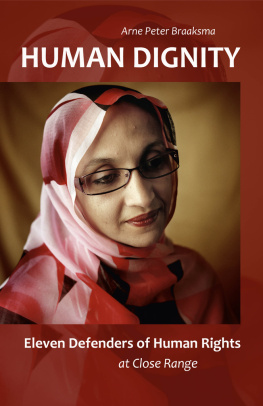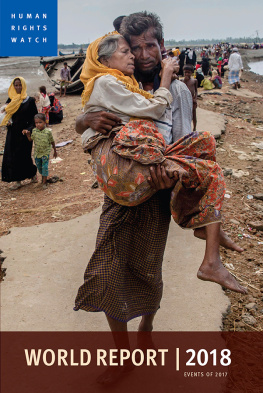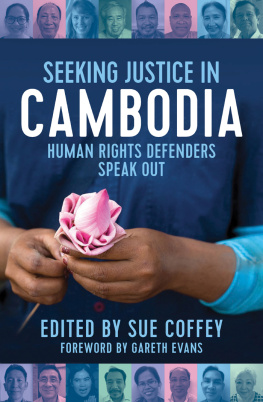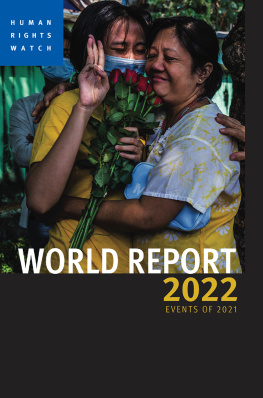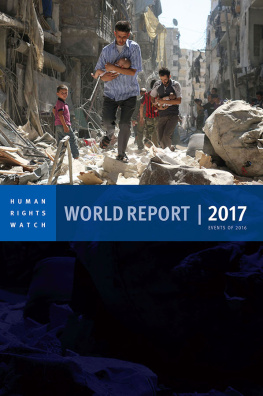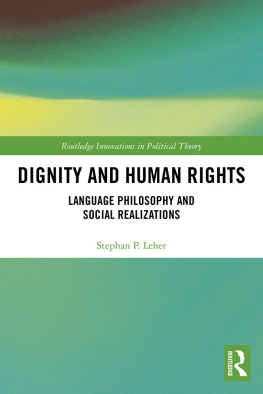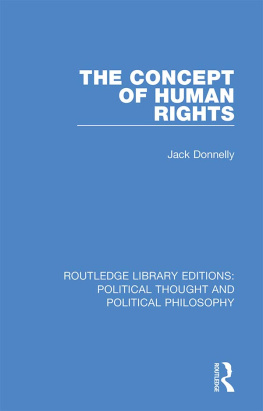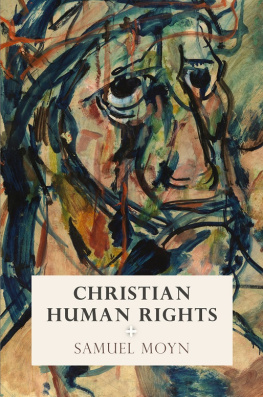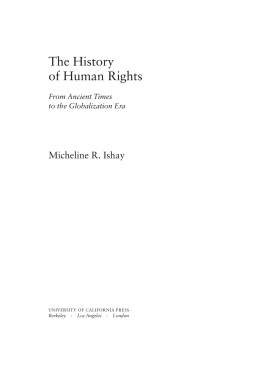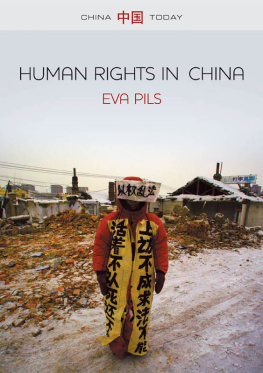Arne Peter Braaksma
HUMAN DIGNITY
Eleven Defenders of Human Rights
at Close Range

PixelPerfect Publications | Den Haag
Dedication
To those who dream of a better life in a better world.
To those who, understanding such dreams, speak truth to power.
To those in power, entrusted to make such dreams come true.
Introduction
"You must be the change you wish to see in the world"
Human Dignity takes you around the world, presenting the stories of eleven human rights defenders who act in the spirit of Gandhis motto: "You must be the change you wish to see in the world." Each of them has become a focal point of fighting human rights violations such as land theft, discrimination, the withholding of health services, dictatorship, environmental destruction, and global warming.
The stories of these remarkable men and women reveal the challenges and struggles facing those who speak truth to power. It would be hard not to be inspired by their resilience in trying to create a better world.
Human Dignity is the sequel to the successful Nine Lives: Making the Impossible Possible (New Internationalist, Oxford 2009) by the same author, which portrays nine other human rights defenders.
Arne Peter Braaksma has worked as an editor in the UK and as a journalist in the Netherlands, focusing on human rights, the environment and corporate social responsibility.
Contributors: Rebiya Kadeer (East Turkestan / Uyghur), Soe Myint (Burma), Martin Macwan (India), Khassan Baiev (Chechnya), Aminatou Haidar (Western Sahara), Samuel Kofi Woods (Liberia), Vuyiseka Dubula (South Africa), Maria Gunnoe (United States), Pablo Fajardo (Ecuador), Liliana Ortega (Venezuela), Sheila Watt-Cloutier (Nunavut)
About the author
Arne Peter Braaksma, author of Nine Lives: Making the Impossible Possible , has worked as an editor in Britain and as a communication adviser and corporate journalist in the Netherlands. From Asian countries he contributed to various public and corporate magazines. This caused him to focus on human rights, the environment and (corporate) social responsibility. Human Dignity is a sequel to Nine Lives and presents stories of people whose lives reflect Gandhis notion you must be the change you wish to see in the world.

Taking the plunge
In reading the history of nations, we find that, like individuals, they have their whims and their peculiarities; their seasons of excitement and recklessness, when they care not what they do. We find that whole communities suddenly fix their minds upon one object, and go mad in its pursuit; that millions of people become simultaneously impressed with one delusion, and run after it, till their attention is caught by some new folly more captivating than the first. We see one nation suddenly seized, from its highest to its lowest members, with a fierce desire for military glory; another as suddenly becoming crazed upon a religious scruple; and neither of them recovering its senses until it has shed rivers of blood and sowed a harvest of groans and tears, to be reaped by its posterity.
Charles Mackay in his Preface to Extraordinary Popular Delusions and the Madness of Crowds (first published in 1841; edition of 1852).
Throw a stone into a lake into the history of any nation. Splash! The moment it plunges through the surface and disappears from sight, only the ripples speak of its passage. The cause is gone, but the effects are still lapping onto the shore. Now, what would happen if you could reverse this? Push back the ripples, forcing the stone out of the water. You would be holding the cause of the ripples in the palm of your hand again. By analogy, the contributors to this book are experiencing ripple effects, often acutely aware of the stone that caused them, but seeking to cause waves that move in the opposite direction.
Rather than piecing their perspectives together from afar, I decided to collect them first-hand, because these remarkable men and women are the living library of events that are unfolding as we speak. Obtaining stories straight from the horses mouth offers greater insights than breaking news.
The causes of most people in this volume however are obscured by those who have opposing interests and spin facts into fable. But in the end, the truth will out, because it is more robust and enduring. Robust are also the endeavors of the contributors. Confronted with great challenges, they speak truth to power and tackle head-on what stands in their path. In this book, not fame, but the nobility of the cause is the determining factor. The advocates of these causes present us with testimonies that are authentic, constructive and significant beyond the borders of their own region. Where truth is suppressed, they speak up. Where all hope seems lost, they persevere, sometimes finding the last straw is nothing other than themselves.
Together, these testimonies form an uncommon odyssey across four continents. It offers rare, unpolished impressions of current affairs and the status quo with regard to human rights. Some chapters dive straight into regional issues, while others have a decidedly global focus. Not being eyewitnesses ourselves, how are we to grasp world events in these 11, let alone 217 countries and territories around the world? Who could? One thing however applies to all these stories: the local illustrates the global. The Inuit story illustrates global warming. The Sahrawi story illustrates that totalitarianism is alive and well. The Ecuadorian story illustrates why corporate social responsibility must be taken seriously all the way to the courthouse.
Each of the contributors demonstrates bravery in the face of issues bigger than themselves. Thus, these chapters offer uplifting examples of staying true to ones beliefs and a feeling of hope and shared humanity. Last but not least, they reflect that an ordinary person can accomplish extraordinary things and can succeed against all odds in struggles that could have been yours or mine. The immediacy and the inside-out telling take you beyond the threshold of mere facts to the relevance of these struggles for all world citizens.
On my way to one of the contributors, an American customs officer asked:
Business?
Yes.
What kind of business?
Im a writer on human rights issues.
Human rights? In the US?
Yes.
Why dont you go to Chad?
Chad?
Or Sierra Leone. To write about blood diamonds and child labor.
Well, I might, one day.
Or China. So many human rights violations.
Yes, plenty of opportunity.
So, what brings you to the US?
Writing about human rights.
Human rights? In the US?
Im here for the convention of Appalachia Rising this weekend and the march on the White House on Monday.
Appalachia?
Yes, Appalachia. There are serious pollution issues there as a consequence of mountaintop removal mining. The waterways, the groundwater and the ground itself are polluted and the people there are paying a heavy price for the way the coal is mined.
And thats a human rights issue?
Yes, it is.
A pause and a frown.
Well, welcome to the US.
Thank you.

